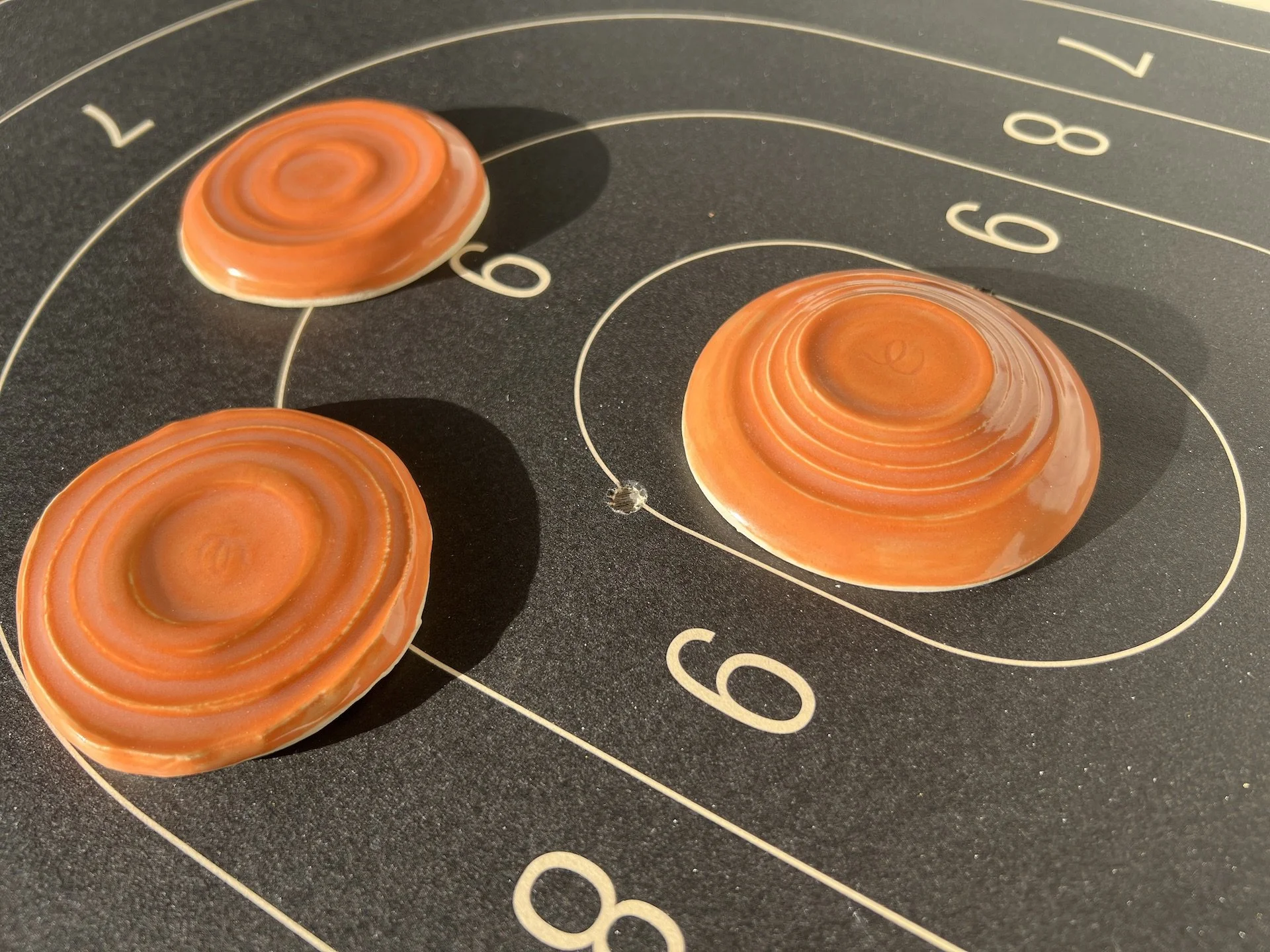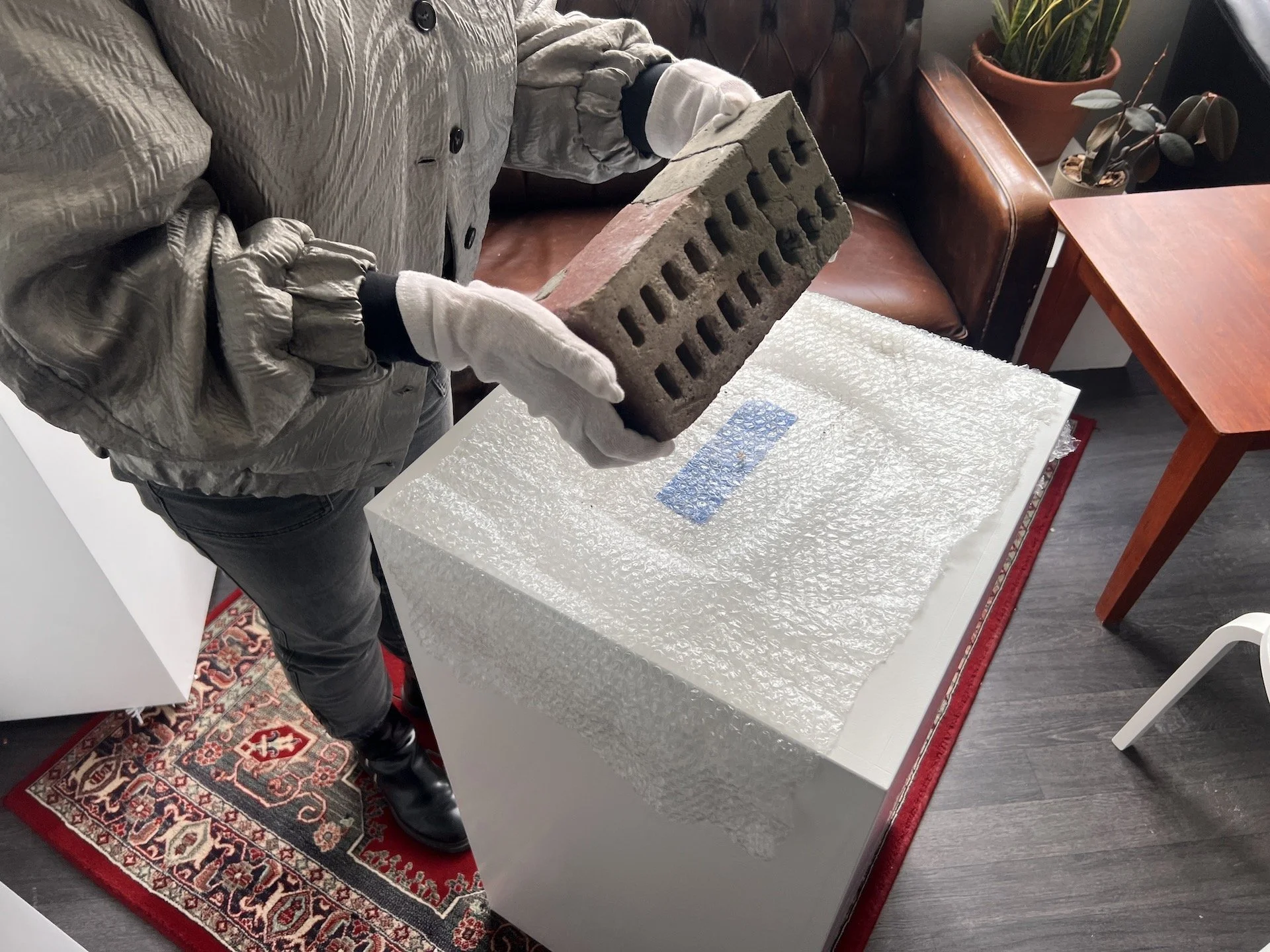Circular Economies Residency: Loren Kronemyer in Esperance #3
Loren Kronemyer is currently working with the community of Esperance and hosted by Cannery Arts Centre. This residency forms part of one of SPACED’s current programs, Circular Economies.
During the final fortnight of September, our artists searched for narrative symmetry. How many lines of inquiry could they hone into circles?
WYLIE BAY
Ally takes us on a visit to the e-waste recycling facilities at the Wylie Bay tip. E-waste refers to electronic waste: tools and toys, that contain batteries, microchips, wires, which in turn contain copper, gold, lithium, and uranium. 20 tonnes of e-waste pass through this facility per year, despite the fact that the shire has one of the lowest population densities in the world.
Here it is collected, sorted, and stored in crates and cages. From this facility it is shipped to Albany, and from Albany to somewhere unconfirmed, for further processing, or salvage, or waste. It’s a loop de loop: The lithium mined in Ravensthorpe is shipped overseas as raw material via the Port of Esperance, then returns here in the form of batteries, before being shipped off again as waste.
On July 1 2024, weeks before our arrival, The Waste Avoidance and Resource Recovery Regulation was enacted, prohibiting e-waste from being dumped in landfill by businesses, service providers, and public entities. Households are not obligated under the ban. The law makes it unclear where the liability is aggregated, but in reality, it all ends up here by some process or another. Wylie Bay is where the community comes together, as represented by its waste.
At Wylie Bay, no one wants e-waste in the landfill: it explodes, causing spontaneous fires and other trouble for the staff. People don’t always intend to cause harm: one staff member suspects that the community can no longer differentiate between things that have batteries and things that don’t. We speculate about a future where end-of-life instructions (and costs) could be included with every purchase.
We watch the sorting line, where a conveyor belt and giant magnets assist the staff to manually sort recycling. The graceful, stationary arm movements of the sorting staff and the tin lids dancing on the giant magnet constitute an elaborate choreography, performed all day, every day.
E-WASTE BUY-BACK
Based on the document governing contributions to the Meat Exporter’s Time Capsule, Metatechnician and Ally and I draft the following:
OPEN studio with Loren Kronemyer
1. You are invited to exchange your e-waste for inclusion in a contemporary conceptual artwork:
SCREENS - PHONES - COMPUTERS
POWER CABLES – SOUND CABLES COMPUTER SPEAKERS – REMOTE CONTROLS
2. ALL MATERIAL SUITABLE FOR RECYCLING WILL BE EXCHANGED FOR (1) PIZZA PER PERSON. RECYCLING SESSIONS OCCUR VIA APPOINTMENTS TEN MINUTES IN DURATION, WITH BOOKINGS ESSENTIAL.
CANNERY ARTS CENTRE, bookings available from 4.00 p.m. ON FRIDAY, 27th. SEPTEMBER.
Late entries will not be included.
3. Items must not exceed the following dimension:
LARGER than a finger
SMALLER than a human body
LIGHT ENOUGH TO BE CARRIED BY ONE PERSON
4. Items will be deconstructed and mined for reusable metals. These metals will be further processed as part of the artwork Materiel World by Loren Kronemyer.
5. All items will be in trust for the lifetime of the project, with full ownership transferred to Loren Kronemyer Studios at the time of pizza exchange.
6. Loren Kronemyer Studios accepts no responsibility for any material accepted for recycling, at any time in the past, present, or future.
• Loren Kronemyer Studios reserves the right to reject any material we consider unsuitable.
LOREN N. KRONEMYER
Artist in Residence, Cannery Arts Centre
-
We spend 3 days seasoning the portable pizza oven, which has sat unused for long enough a shed has accidentally been built around it. I set up an office in the Cannery’s lookout, a beautiful nest at the top of 35 steps. After being briefed by Metatechnician, guests ascend, alone or in pairs, and we assess and dissect their e-waste together. I harvest several lustrous pieces, rich in copper and other minerals. My goal is to refine this process to an artform. We finish just as the rain starts.
TARGETS
On my last day, I remove my first completed handmade clay targets from the kiln. With help from the ceramics club, I have progressed from hand-building, to wheel, to mold making. We find a bright tangerine underglaze, which looks amazing coming out of the kiln. Via all three methods, I manage to make 30 target-like sculptures in total. When considered chronologically, it’s easy to trace the progress from 1-30. I have to leave several in an unfinished state, with promises exchanged between me and the other potters about how we will finish them together.
BRICK
SPACED Curator Miranda and Executive Director Elizabeth have flown down to mark the close of this portion of the residency. They bring with them a brick. In early August, this brick sat broken in half, behind the pizza oven tomb shed. There, it was found by Subresident Jessee Lee Johns, who hand-freighted it back to Prestige Bricks, his autonomous brick repair factory in Waylyup Fremantle. Jessee restored the brick back to its original rectangular form, and then into the hands of Miranda and Elizabeth, who have flown it back to its place of origin here in Kepa Kurl Esperance. The restoration of the brick marks the final circle, and the close of this visit.
Images courtesy of the artist in order: a collection of clay target fragments, digitally archived by hosting, Wylie Bay E-Waste Locker, E-Waste Buy-Back still, Clay Targets 1-3, work in progress, Cannery Arts Centre General Manager Katie Witt unpacking Brick #5 by Jessee Lee Johns.
More information about the Circular Economies artists, host communities and projects as they unfold can be found by subscribing to SPACED’s monthly email newsletter, and following SPACED on Facebook and Instagram.
To learn more about Loren Kronemyer, please join her mailing list at www.lorenkronemyer.com and explore her other notes @lorenrubicana.
Circular Economies is produced as a joint partnership by PICA - Perth Institute of Contemporary Arts and SPACED.







